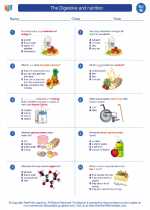Nylon and its Properties
Nylon is a synthetic polymer that was first produced in the 1930s by a team of chemists working for the DuPont company. It is a versatile material known for its strength, durability, and resistance to abrasion. Nylon is commonly used in the production of textiles, plastics, and other materials.
Chemical Structure
Nylon is a type of polymer known as a polyamide. It is made through a chemical process called polymerization, in which individual monomer molecules are linked together to form long chains. The chemical structure of nylon gives it its characteristic strength and flexibility.
Properties of Nylon
Nylon exhibits several important properties that make it useful in a wide range of applications:
- Strength: Nylon is known for its high tensile strength, making it suitable for use in products that require durability and resilience.
- Flexibility: Nylon is a flexible material, allowing it to be molded and shaped into various forms.
- Resistance to abrasion: Nylon is highly resistant to wear and tear, making it suitable for use in products such as ropes, fabrics, and carpets.
- Chemical resistance: Nylon is resistant to many chemicals, making it suitable for use in applications where exposure to harsh substances is a concern.
Applications of Nylon
Nylon is used in a wide range of products and industries, including:
- Textiles: Nylon is commonly used in the production of clothing, hosiery, and other fabrics due to its strength and durability.
- Plastics: Nylon is used in the production of various plastic products, including combs, toothbrushes, and kitchen utensils.
- Industrial materials: Nylon is used in the production of ropes, fishing lines, and other products that require strength and flexibility.
- Automotive industry: Nylon is used in the production of car parts, such as engine components and interior trim pieces.
Study Guide
When studying nylon, it's important to focus on the following key points:
- Understanding the chemical structure of nylon and how it differs from natural polymers.
- Exploring the properties of nylon, such as strength, flexibility, and resistance to abrasion.
- Identifying the various applications of nylon in everyday products and industries.
- Considering the environmental impact of nylon production and exploring sustainable alternatives.
By mastering these key points, you will have a solid understanding of the properties and uses of nylon, as well as its significance in the world of materials science and industry.
.◂Science Worksheets and Study Guides Eighth Grade. The Digestive System & Nutrition

 Worksheet/Answer key
Worksheet/Answer key
 Worksheet/Answer key
Worksheet/Answer key
 Worksheet/Answer key
Worksheet/Answer key
 Vocabulary/Answer key
Vocabulary/Answer key
 Vocabulary/Answer key
Vocabulary/Answer key
 Vocabulary/Answer key
Vocabulary/Answer key
 Vocabulary/Answer key
Vocabulary/Answer key
 Vocabulary/Answer key
Vocabulary/Answer key
